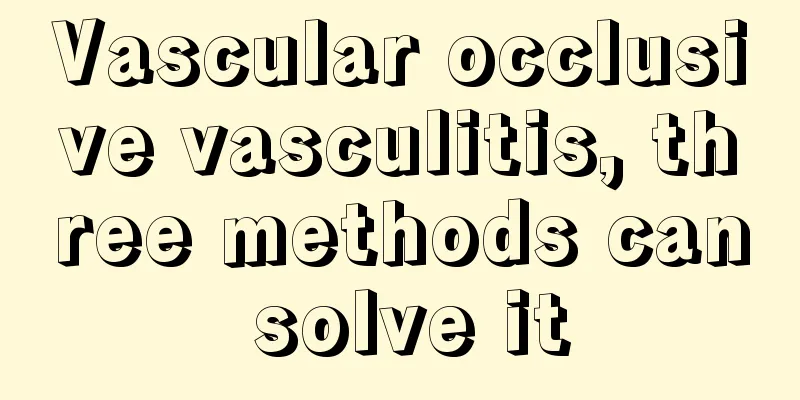How to treat purpura nephritis

|
Purpura nephritis is a relatively common kidney disease and also an adverse symptom caused by purpura. If purpura nephritis occurs, it needs to be treated promptly. After all, the kidneys have a very important impact on the overall functioning of the human body. So, if a patient has purpura nephritis, how should it be treated? Here I will introduce to you the treatment methods of purpura nephritis! 1. Treatment principles Actively control immune inflammatory responses, inhibit glomerular mesangial proliferative lesions, and prevent and delay the formation of chronic renal fibrosis. 2. General treatment Pay attention to rest and maintain water and electrolyte balance. Patients with edema and heavy proteinuria should be given a low-salt diet, limit water intake, and avoid high-protein foods. Prevent upper respiratory tract infections, clear chronic infection lesions, find allergens, and avoid re-contact. 3. Medication (1) Isolated hematuria or pathological grade I: only appropriate treatment should be given for Henoch-Schonlein purpura. Changes in the condition should be closely monitored, and follow-up for at least 3 to 5 years is recommended. (2) Isolated proteinuria, hematuria and proteinuria or pathological grade IIa Angiotensin-converting enzyme inhibitors (ACEI) and/or angiotensin receptor blockers (ARB) have the effect of reducing proteinuria, such as tripterygium wilfordii glycosides. But be aware of its side effects. (3) Non-nephrotic proteinuria or pathological grade IIb or IIIa: Treatment is with tripterygium wilfordii polyglycosides or hormones combined with immunosuppressants, such as hormones combined with cyclophosphamide, combined with cyclosporine A or tacrolimus. (4) Nephrotic syndrome or pathological grade IIIb or IV: The clinical symptoms and pathological damage are both severe. Currently, the treatment is mostly based on hormones combined with immunosuppressants. Among them, the most effective treatment is glucocorticoids combined with cyclophosphamide (CTX). If the clinical symptoms are severe, the pathology is diffuse or accompanied by crescent formation, methylprednisolone pulse therapy can be used. (5) Rapidly progressive nephritis or pathological grade IV or V. The symptoms are severe and the disease progresses rapidly. Triple to quadruple therapy is often used. The commonly used regimen is: methylprednisolone pulse therapy for 1 to 2 courses, followed by oral prednisone + cyclophosphamide (or other immunosuppressants) + heparin + dipyridamole. 4. Plasma exchange Clinical manifestations of Henoch-Schonlein purpura nephritis are rapidly progressive nephritis, and renal biopsy shows a large number of crescent formations (> 50%). Active treatment measures such as plasma exchange should be taken. It can reduce kidney damage and slow down the progression of renal failure. |
<<: Purpura appears on the skin
Recommend
Muscular legs running can slim down your legs
Muscular legs give people a feeling of being thic...
What should you pay attention to in your diet after chemotherapy for breast cancer?
In recent years, breast cancer has gradually rise...
What are the effects and functions of wolfberry root
Wolfberry root is also called Di Gupi, which is a...
Will you feel uncomfortable before dying from breast cancer?
What kind of discomfort will death from breast ca...
What kind of water can cause liver cancer? To prevent liver cancer, don't eat these things
Nowadays, liver cancer and other cancers are freq...
Factors that cause prostate cancer
You should have a full understanding of your own ...
What causes cardiac cancer? What are the symptoms of cardiac cancer?
Cardiac cancer is a relatively common cancer clin...
What should lung cancer patients pay attention to in terms of diet? Introduction to TCM syndrome differentiation and treatment methods for lung cancer
What should lung cancer patients pay attention to...
Will washing your face with rice water cause allergies?
Many people with sensitive skin dare not use cosm...
Sexual health: Six major killers that murder women's "breasts"
Don't believe that drinking alcohol and milk ...
Is pearl cotton harmful to the human body?
Pearl cotton is a widely used material in modern ...
Can I take a shower on the fourth day after an abortion?
After an abortion, it is best for women to rest i...
The most important health care measure for breast cancer
Among the many cancer diseases, breast cancer is ...
Differential diagnosis of right renal cancer
Renal cell carcinoma can occur at any age, but is...
How many days after straightening with softening flat irons can you wash your hair?
Some people are born with curly hair, and some ar...









